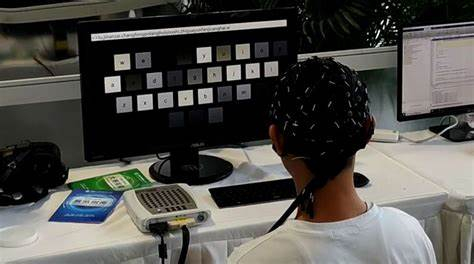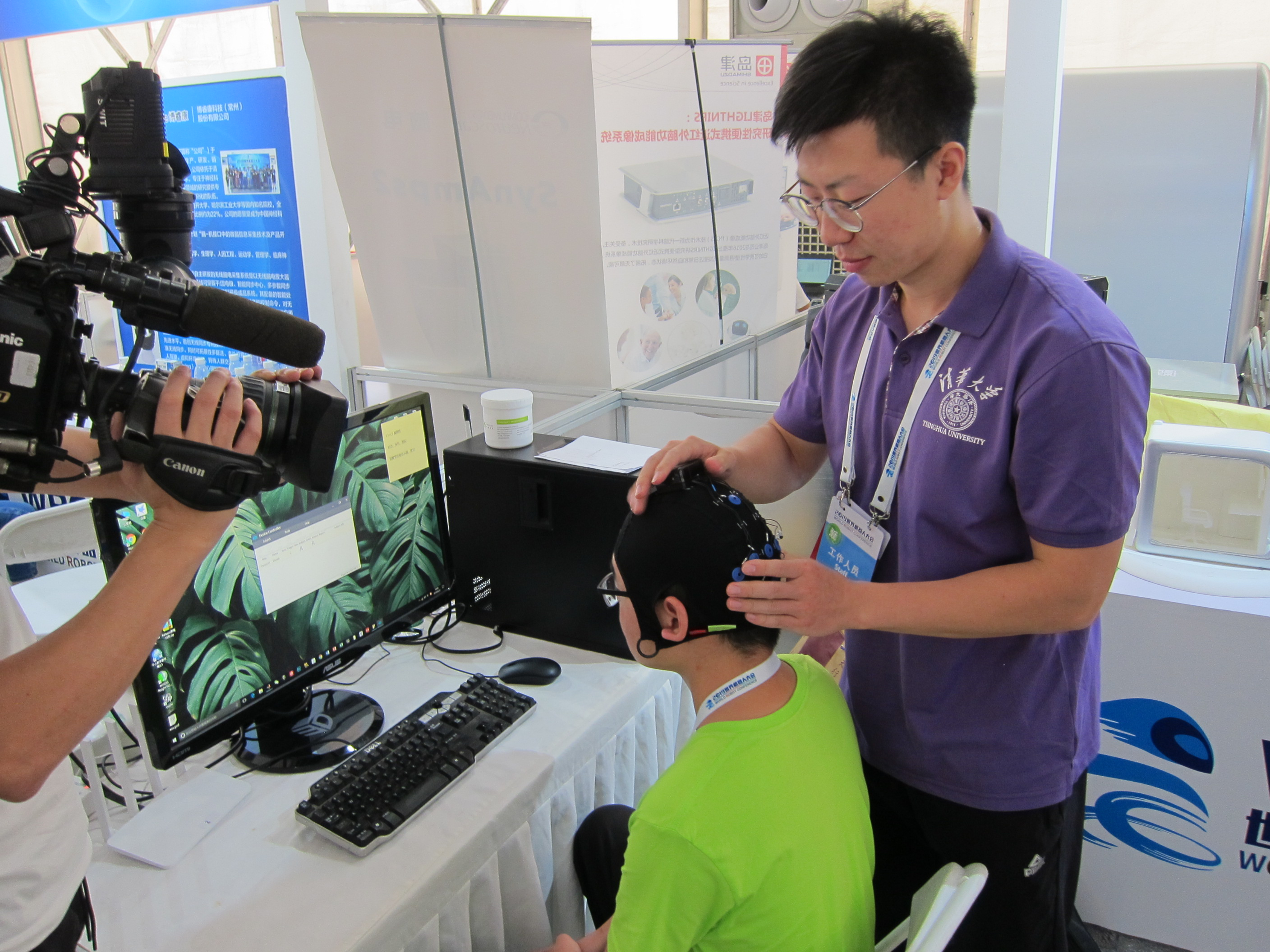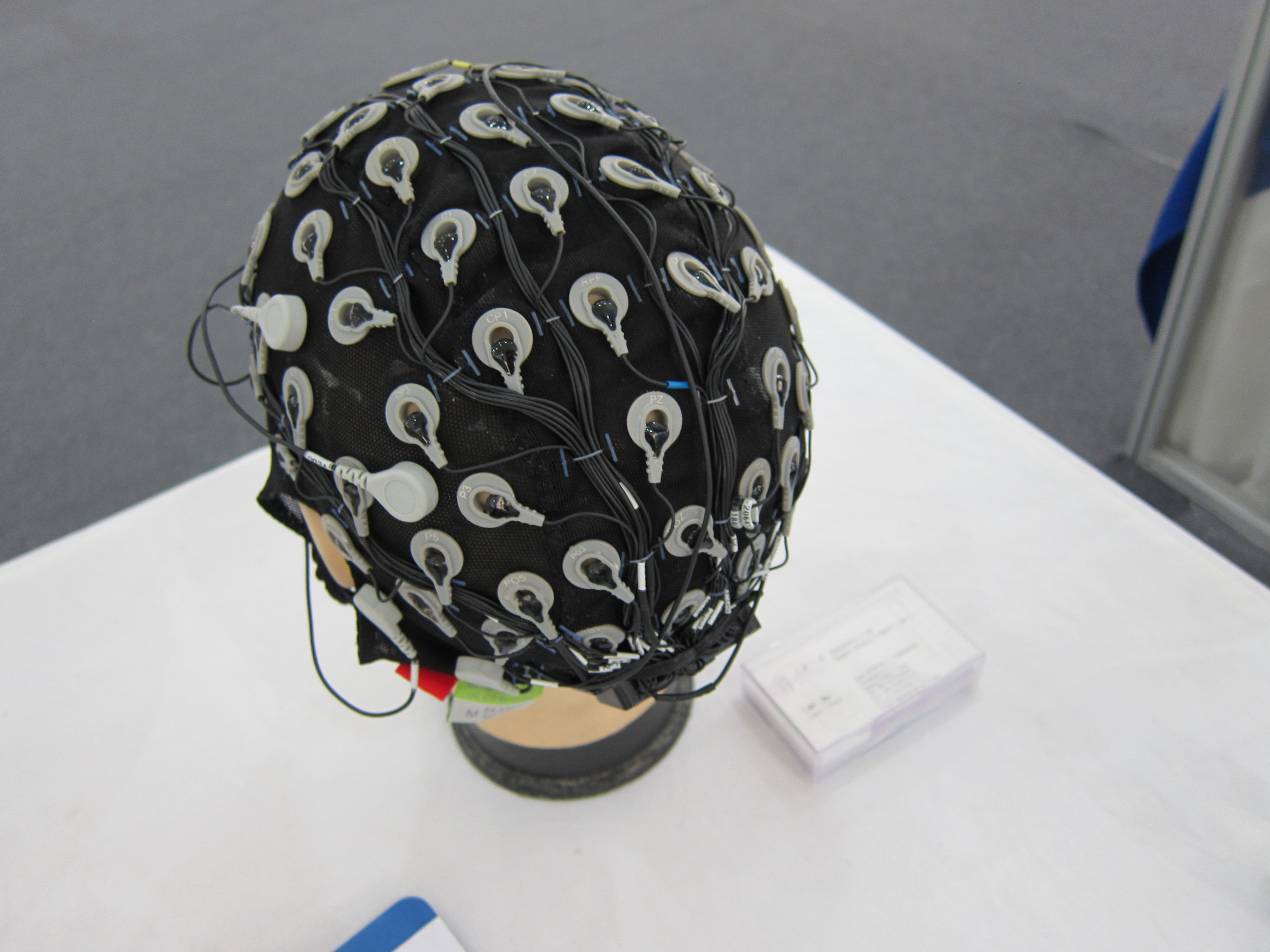

Zhou Baishun sits still, hands on his lap and stares at a computer screen. A sentence appears on the screen.
He's showing how through a system developed by Tsinghua University with Brain-Computer-Interface (BCI) technology, he can just think and let the computer spell.
The "helmet" he has collects his brain signals, and the Tsinghua system deciphers the signals and turns them into computer action.
The system works best on people like Zhou: those with strong brain signals and who are able to stay focused.
"You just need to focus on which consonant syllables you want to choose. When the system detects the choice. It appears. It needs a little more attention than just thinking," Zhou told CGTN.
The system was first designed to help physically immobile people.
Sun Jinnan, a Tsinghua University BCI team member and graduate student, said, "We hope it can help people like [Stephen] Hawking, who had ALS, or Amyotrophic Lateral Sclerosis, and can't move their bodies. Sadly the physicist passed away."

BCI mindspell showcase underway at Tsinghua University BCI lab. /CGTN Photo
The idea of a brain-computer interface came into being decades ago.
Professor Gao Xiaorong, who was among the first scientists to pursue the technology in China, says it's only recently that it's been proven scientifically feasible.
Gao told CGTN that even though the term BCI came into being in the 1970s, it was largely science fiction then.
His team had tried to pursue a way to connect brains and computers to help patients.
"The paradigm we started was for medical purposes, giving ALS and stroke patients new leases of active life," Gao said.
"And after more than 10 years of research, the scientific arch has been acknowledged and accepted, it went from brain-computer interface, then to interaction, and finally to brain-computer intelligence."
And now with technological advances like artificial intelligence (AI), Gao says BCI has suddenly heralded even broader possibilities.

Brains signals are harvested and deciphered in BCI technology. /CGTN Photo
"With AI coming into the picture, BCI research has new branches. It's assumed that if human intelligence can bridge and work with the more powerful machine intelligence, the two intelligent agents can combine to become a 'superman'."
Gao says a "superhuman" won't materialize in the near future.
But BCI has turned into a buzzword in the tech world. Facebook has made progress in letting people type with their minds. Elon Musk's development of a BCI device called Neuralink is a sensation worldwide.
And at the World Robot Conference's BCI section, BCI developers and contests are trying to take the technology further.

Copyright © 2018 CGTN. Beijing ICP prepared NO.16065310-3
Copyright © 2018 CGTN. Beijing ICP prepared NO.16065310-3